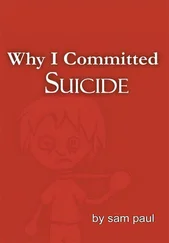We hung up and, if nothing else, at least I had the satisfaction that he had given me a crutch to steady myself when I was stumbling in the dark.
Adriani was sitting in front of the TV, watching a game show. I wasn’t in the mood to hear her answer all the questions correctly and then listen to her moaning about all the millions she’d lost. I went into the bedroom to find Dimitrakos. I was stopped, however, by the sound of the doorbell and I went to see who it was. Fanis was standing at the door holding a paper bag in his hand and smiling. I imagined it must have been a little something for Adriani because he’d often bring her little gifts as a way of repaying her for all the cooking she did for him.
I was proved wrong, however, because he held the bag out to me. ‘Something from your daughter,’ he said.
‘From Katerina?’
‘Yes, a little gift.’
My surprise increased because Katerina was not in the habit of sending me gifts from Thessaloniki. She even saved money on the heating so as not to be a burden on me. I opened it straightaway and discovered a book with a cheap, garish cover, white, red and black, which reminded me of history books and resolutions by the Greek Communist Party. Its title was: Jason Favieros. From the Dungeons of the Military Police to the Salons of the Stock Exchange . The author was someone by the name of Minas Logaras and the name of the publisher was Sarantidis. I flicked through it mechanically and saw that it was 320 pages long.
I was not in the least surprised that some people were trying to exploit Favieros’s spectacular suicide. What did puzzle me, however, was how the author managed to write and publish a 320-page biography in the space of only ten days after Favieros’s suicide? Unless they had had it ready and were releasing it now. Just a coincidence? Perhaps, perhaps not.
‘When did this come out?’ I asked Fanis.
‘I don’t know. They’re advertising it though.’
‘And where did Katerina come across it?’
‘Katerina doesn’t only read dictionaries like you do,’ he said laughing and winking at me.
‘You’re wasting your breath, Fanis dear,’ Adriani chipped in. ‘Costas only concerns himself with small print. Fills his life with it.’
Actually, the small print referred to the dictionary entries I read, but this time she was using it in its wider sense, to include all the little problems, usually to do with work, that filled my time and removed me from her supervision.
I swallowed my anger because I didn’t want us to get into a row in front of Fanis. Though I didn’t admit it to myself, deep down I didn’t want him to think that his girlfriend had parents who went at it like cat and dog.
I preferred to call Katerina to thank her. ‘How did you come across it?’ I asked her.
‘I saw it advertised in the newspapers and I thought it might interest you.’
‘Of course it interests me. Thanks a lot.’
‘How many pages is it?’
‘From what I saw, around 300.’
She started laughing as though she found it funny. ‘I feel sorry for you,’ she said.
‘Why?’
‘Because it’s not at all your cup of tea and you’ll break out in spots trying to finish it.’
‘No, I’ll fool myself into thinking I’m reading an official file. They’re equally boring.’
She came out with the same question I had. ‘How did they manage to write and print a 300-page biography in only ten days following Favieros’s suicide?’
‘They must have had it ready and simply printed it straight after the suicide.’
‘In that case, his family must have known about it. Usually the biographer is in contact with the person he’s writing about.’
‘Brilliant, Katerina!’ I shouted enthusiastically. ‘Why didn’t I think of that!’
‘Why do you think I want to become a public prosecutor?’ she replied, laughing. ‘Kiss Mummy for me,’ she said as we were about to hang up.
‘Your daughter sends you kisses,’ I shouted to Adriani, who was talking to Fanis.
She jumped up from where she was sitting. ‘Don’t hang up, I’m coming.’
The kisses went on for around half an hour, embellished with all the day’s events in Athens and Thessaloniki. Meanwhile I was chatting with Fanis, who found the business with the biography very suspicious and was sure that the name of the biographer would turn out to be a pseudonym.
‘Why?’ I asked.
‘Because if it were a real name, he’d be doing the rounds of the TV channels, giving interviews, at this very moment. What writer would pass up the opportunity of free publicity for his book? But this Logaras hasn’t shown up anywhere. Do you find it logical?’
No, I didn’t. The biography, together with Katerina’s observations and Fanis’s comments had roused my interest and I was in a hurry to begin reading. Fanis left at around eleven thirty, Adriani went to bed and I got comfortable in the sitting room with the book in my hands.
Logaras didn’t provide much information about Favieros’s childhood; he got it out of the way in the first twenty-five pages. Favieros had been born in Koliatsou Square. His father was a lawyer and his mother a school teacher. He had gone to the local primary and secondary schools and had got into the Athens Polytechnic School with exceptional exam grades. From that point onwards, Logaras appeared to know in detail all aspects of Favieros’s student life: how good he was as a student, who he mixed with both inside and outside the Polytechnic School, which of his fellow students he was close to. Favieros was one of the leading members of the student movement and he had become involved in the struggle against the Junta from the outset. The Security Forces had arrested him in ’69, but they released him six months later. He was taken into custody again in ’72, this time by the Military Police. Logaras knew how badly Favieros had been tortured, by whom, even what kinds of torture they used. It made you wonder where he had found and gathered all this information, if not from Favieros himself. Whatever the case, the portrait that emerged from the book was that of an exemplary young man. An exceptional student, liked by everyone, politically active, in the front line of the struggle, who had been subjected to terrible torture but who hadn’t broken.
Just as I was coming to the end of Favieros’s early years, Adriani, half-asleep and in her nightie, poked her nose round the door. ‘Are you right in the head?’ she said. ‘Do you know what time it is?’
‘No.’
‘It’s three in the morning.’
‘I’d no idea. So that’s why it’s so quiet.’
‘Do you intend staying up all night?’
‘I don’t know. I want to finish the book that Katerina sent me.’
She crossed herself so the evil spirits wouldn’t visit her in her sleep and went back to bed.
Favieros’s student life came to an end roughly halfway through the book, which is where the account began of his professional life and his rise in the business world. Logaras didn’t hide the fact that Favieros received favourable treatment through his contact with ministers and people in high places in the government. He had been in the student struggle with at least four ministers and numerous party cadres. With their help, he had also met the rest of the government cabinet. He had started out with nothing: a small company that constructed pavements and drains for the Water Company, and in less than seven years he found himself the owner of Domitis Construction, plus a ready-mix concrete company, plus a company that manufactured asbestos-cement pipes. According to his biographer, however, over and above any contacts he may have had in the government, he owed all this primarily to his own entrepreneurial instincts, to the profitable operation of his businesses and to his skill in choosing the right people for the job. It was the first construction company to expand its activities in the Balkans following the collapse of the communist regimes and had projects underway in all the neighbouring countries. In short, Logaras was saying what Favieros himself had said just before committing suicide. Instead of giving information which might have helped to explain Favieros’s suicide, it merely confirmed what we already knew: namely that he had no reason for committing suicide. In general, it was a biography that flattered him outright.
Читать дальше












